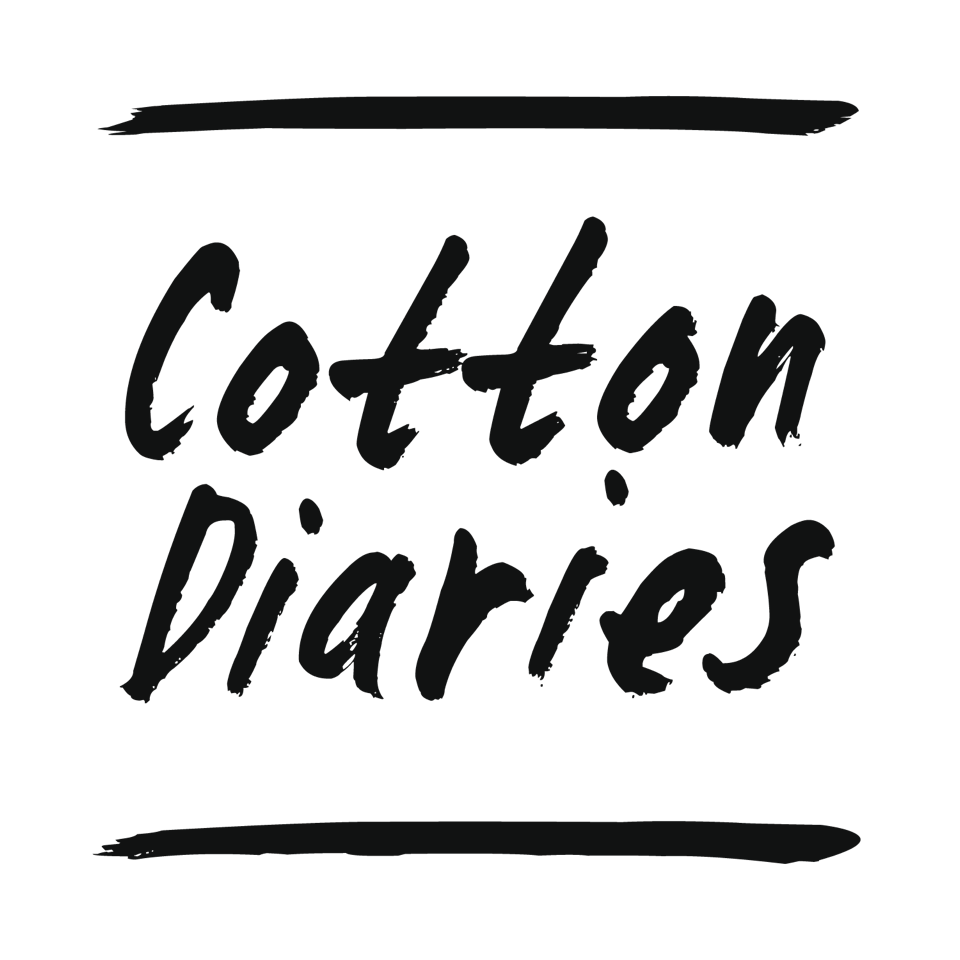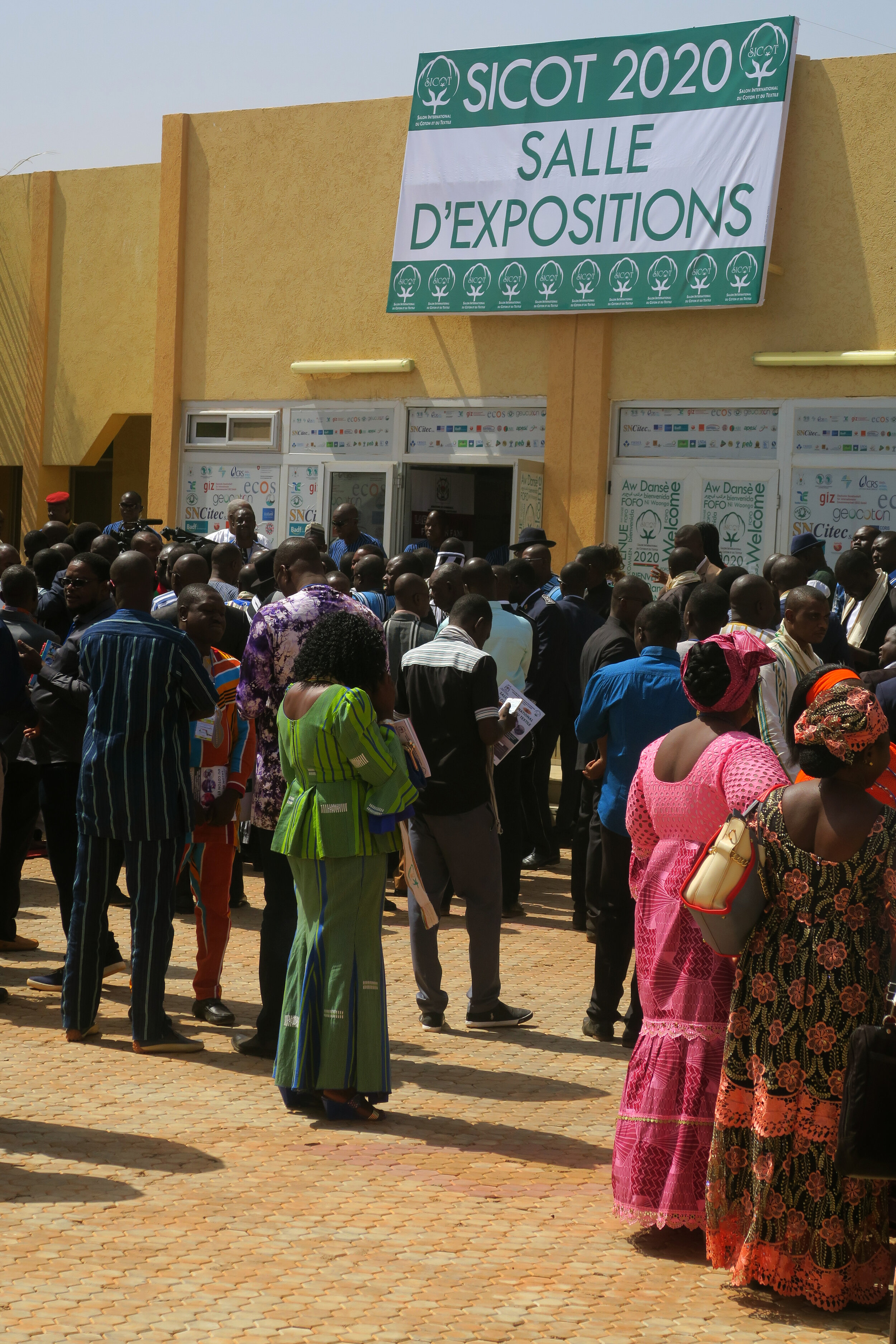Encouraging joint efforts towards a fair cotton system in West Africa
Tobias Meier is one of the driving forces behind the West Africa Organic and Fairtrade Cotton Coalition – an initiative that aims to upskill farmers and increase organic cotton production by promoting collaboration and partnerships in Burkina Faso, Mali, Senegal and Benin.
TOBIAS AND THE CCBE’S JOURNEY
First grown in West Africa in the 1990s, organic cotton offers thousands of small farmer families the opportunity to earn a fair and sustainable income. It’s currently being grown by a small percentage of farmers there, more than half of whom are women.
But how do we help this relatively small sector to flourish? Tobias Meier, Senior Project Leader for the Green Economy at the Swiss consultancy Ecos, believes that collaboration is key. Having worked with organic cotton producers in the area since the early 2000s during his 22-year stint at the Swiss sustainable development organization Helvetas, his current focus is on encouraging cooperation to boost competition.
“When I left Helvetas, my former colleague, Gian Nicolay, who now works as representative for Africa at the Research Institute of Organic Agriculture (FiBL), contacted me,” Tobias recalls. “He recognised the potential in the area, but feared that the existing organic cotton projects were not sustainable enough yet. He recommended that we try to build a coalition to develop production.”
SICOT conference, Burkina Faso 2018. From left to right: Amdiatou Diallo, FNPC, Senegal, Youssouf Djime Sidibé, AProCA, Délphine Bodjrenou, Obepab Benin, Tobias Meier, Ecos, Issiaka Dembele, CMDT Mali, Hamidou Bagayoko, Fénabe Mali, Arun Ambatipudi of Chetna Organic.
Fast forward to today, and Tobias is one of the driving forces behind the West Africa Organic & Fairtrade Cotton Coalition (CCBE). Founded in December 2017, the coalition is sustained by the cotton producer organizations from Mali, Benin, Burkina Faso and Senegal, with the support of Ecos, the Swiss consultancy for which Tobias now works, the Research Institute of Organic Agriculture (FiBL), and the Association of African Cotton Producers (APROCA). It aims to represent a common link between organizations and individuals at different stages of the cotton supply chain–from smallholder farmers and national cotton producer organisations to ginning factories, spinning mills, and international brand partners.
In building out the coalition, the goal is for organic and Fairtrade to reach a 5% share of the total cotton produced in each country by 2030. For context, their total organic production was around 2200 tonnes for last season, and has been informally estimated as being on track towards 2900 tonnes for next year. CCBE’s 2030 vision would see this dramatically increase to 40,000 tonnes of fibers (100,000 tonnes raw cotton), in turn providing a reliable income for thousands of farmers and their families.
We spoke to Tobias about the progress in building out the coalition so far, alongside the key problems it is tackling, and ideas for how they could, or already are, being addressed by different stakeholders.
“ Through this kind of collaboration, the organic cotton sector of the region should become stronger and more competitive.”
THE PROBLEMS TOBIAS AND THE CCBE ARE TACKLING
Lower yields from organic farming. Most of the organic cotton in West Africa is grown by smallholder farmers, with limited access to land. “At the moment, most have between 0.5 and 1.5 hectares of land available on which to plant their cotton. Organic cotton yields are also often (not always, but on average) lower than in conventional farming. So, it’s important to work on increasing these yields through efficient cultivating methods, looking at seeds, using organic fertilisers, beneficial organisms, and organic pesticides.”
Organic cotton flower, Burkina Faso
A limited market access for cotton farmers in West Africa. A large majority, 97% according to Tobais, of the cotton produced in West Africa goes on to be exported. “This means that the farmers and cotton societies are fully reliant on the world-market, and the prices that come with it. Accessing that market can be hard for them, as the West African countries are geographically far away from the main epicentres of the global textile industry where fibres are usually ginned, spun, and woven.”
Workshop held by West Africa Cotton Coalition during SICOT conference 2020.
A lack of facilities to transform organic cotton locally. One of the main barriers to reducing the percentage of cotton that is exported is the lack of facilities available to transform the raw cotton locally, particularly when it comes to ginning. As a result, the countries lose out on the potential value that could be added if it were taken from fibre into yarn or finished garment without leaving West Africa. “There lies a big potential if part of it could be transformed locally.”
Little governmental and institutional support for organic cotton. At the moment, the governments of the West African countries involved in the coalition largely focus their agricultural strategies on conventional cotton. “In most of the countries, especially Burkina Faso, there is quite a big organic farming market for products like mango, cashew, shea, sesame, and cacao, but historically there haven’t been any big links with cotton farming.” Although Tobias confirmed that “there are efforts taken now in all the countries and especially in Burkina Faso, where the government is putting efforts to promote organic cotton together with UNPCB.”
TOBIAS AND THE CCBE’S SOLUTIONS
A farmer during SICOT conference 2018. She is wearing a Tshirt that translates “Organic and Fair Trade cotton are an alternative for women rural farmers”
Supporting training and cross-border exchanges to improve farmers skills. Tobias supports collaboration at different levels, including between the farmers on the ground, recognising the value in supporting them to connect with each other both locally and internationally as a potential step forward. “There’s an exchange with small producers in East-Africa, Asia and potentially Latin America planned to encourage skill sharing, for example. There has been significant interest from the various West African cotton producer groups to share their experiences and learn from one another.”
Helping organic cotton farmers boost their income through other organic crops. To make it financially feasible for more farmers to grow organic cotton, Tobias talks of the need to work with them to find ways to boost their income. FiBL is already providing support on the ground, and there’s plenty of scope for more research in this area. “A premium should be paid to the farmers for organic cotton. Meanwhile, we should also look at other crops such as rotation crops for local, national and international markets, and trees such as cashew, shea, and mango. If the farm already has organic certification in place, then these products could be sold with a premium too. Plus, we need to help farmers adapt their systems to the changing climate and new weather patterns.”
Women organic cotton farmer cooperative in the Tari Village, Habiba [in the middle] is the cooperative’s lead.
Creating synergies and mutual learnings with the conventional cotton market. The ethos of cooperation and partnership that Tobias and the CCBE endorse extends to the conventional cotton farmers and producers too. “Synergies should be found with the conventional cotton market. This is essential because the cotton markets are often still monopolised by cotton societies. There shouldn’t just be competition, but collaboration instead. Best practices in organic farming could be adapted in conventional farming and vice versa.”
SICOT conference, Burkina Faso 2018
Connecting stakeholders to bring better market access. Tobias emphasises the importance of a partnership-led approach which connects different national and international stakeholders, as well as the role of international events in helping to do this. “We are now establishing partnerships with the Chetna Coalition in India, Textile Exchange, and Fairtrade International too. In January 2022, there will be the 3rd Salon International du Coton et du Textiles (SICOT) event in Koudougou, Burkina Faso. This marks another milestone in establishing the coalition. However, we still need to find partners along the value chain that guarantee to source more organic cotton to be integrated into their products.”
Encouraging efforts to build up local transformation of organic cotton. Building up local value chains by establishing partnerships is another important part of Tobias and the CCBE’s mission. With the recent opening of an organic cotton ginning factory in Burkina Faso, there are plenty of positive examples to learn from too. “The National Union Of Cotton Growers Of Burkina (UNPCB) are teaming up with Burkina Faso’s spinning mill FILSAH to produce organic cotton yarn and sell it to the textile industry as well as to independent handicraft-producers. Brands based in the country such as François 1er in Koudougou, and Xoomba in Bobo Diolassou have also started producing clothing made from the cotton. This kind of local, sustainable textile production could have a huge potential on the world market, bringing new jobs and creating a bright future for thousands of farmers and artisans.”
Organic ginning factory operations, Burkina Faso 2020
Implementing innovative traceability tools. Tobias also talks of traceability technology as an important solution, citing the Swiss start-up Haelixa’s pilot system that sees organic cotton marked with a DNA marker at the ginning factory in Burkina Faso. “With this process the final product can be tested, and there is a certain level of guarantee that a finished t-shirt or pair of jeans contains that true organic and Fairtrade cotton. We want to establish a marketing story around pure-origin organic and Fairtrade cotton from West Africa, so these systems are important.”
Organic cotton bales in Burkina Faso organic cotton gin, 2018
Learn more
What is Fairtrade cotton?
Where can I find out more about the Organic and Fairtrade Cotton Coalition West Africa?
Who is using West African cotton? Discover Seed2Shirt, François 1er and Xoomba.
How can we learn from the story of the failed introduction of GM Cotton in Burkina Faso?
Greetings from: Mali, Senegal, Burkina Faso, Benin and Switzerland.
*The views, thoughts, and opinions expressed in the text belong solely to the solution-provider, and not necessarily to the entire Cotton Diaries community. You can find full disclaimer information here.






![Women organic cotton farmer cooperative in the Tari Village, Habiba [in the middle] is the cooperative’s lead.](https://images.squarespace-cdn.com/content/v1/5ad5dc952487fd8b1901775d/1626285161905-AAVVZA62XRFC76OWSEMK/DSC_0432.JPG)


